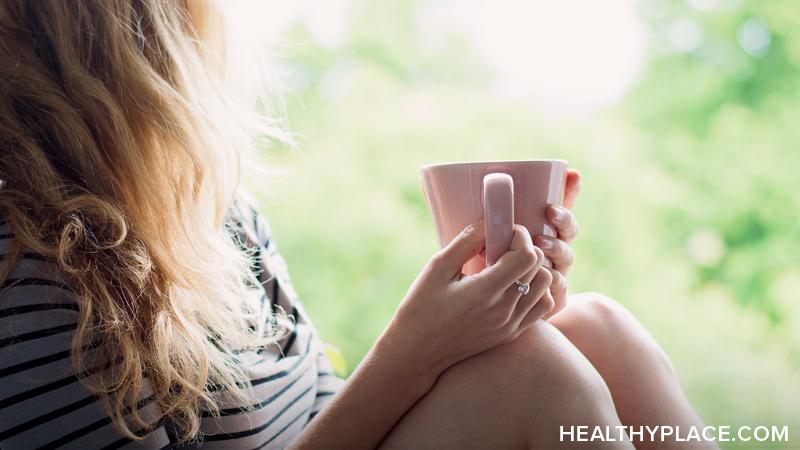Need Self-Help for Stress? Try These Tips
 If you’re human, chances are you need self-help for stress. Stress is universally experienced, and sometimes it skyrockets. Self-help strategies work wonders for managing and reducing stress. The following tips can help you take back your life; give them a try, and use the approaches that work for you.
If you’re human, chances are you need self-help for stress. Stress is universally experienced, and sometimes it skyrockets. Self-help strategies work wonders for managing and reducing stress. The following tips can help you take back your life; give them a try, and use the approaches that work for you.
Before diving into strategies to reduce stress and anxiety, two important pieces of information need mentioning.
- Symptoms of anxiety and stress can mimic other physical health conditions, and stress can contribute to the creation of health problems like high blood pressure (read about The Difference Between Anxiety and Stress). It’s important to talk with your doctor about your symptoms to rule out any underlying problem.
- The below tips have been proven to be effective (not all are effective for everyone, but everyone can benefit from some of them); however, in addition to these self-help techniques, it’s important to identify what is contributing to your stress so you can address and even eliminate it.
You have within you the power to reduce your stress and anxiety and create the quality life you want to live. These self-help tips for stress will help you help yourself thrive.
Self-Help for Stress: Acceptance and Commitment Therapy
One of the most important factors in managing and reducing both stress and anxiety is your perspective, your outlook. If you are stuck in stress, focused mainly on the difficulties it brings to your life and wanting it to be gone, your focus is on your stress; therefore, it will be difficult to get it out of your life. If, however, you shift your attention to what you want rather than what you don’t want, you free yourself to benefit from self-help for stress and anxiety.
A healing approach used by therapists, acceptance and commitment therapy (ACT), is a very useful self-help technique because its principles are user-friendly and, once learned, easy to apply to life and keep stress at bay. ACT has just six major principles, and they all work together to help with anxiety and stress.
- Defusion: distance yourself from your stressors so you are no longer stuck to them.
- Acceptance: rather than fighting against things that can’t be changed, accept their presence so you can move forward in spite of them.
- Be present, also known as mindfulness: live in the moment, concentrating on the here-and-now rather than on stressors and worries.
- Observe yourself: Rather than berating yourself harshly, become aware of your thoughts and merely observe, or notice them, allowing them to float away.
- Know your values: determine what is important to you, and place your attention there rather than on anxiety and stress.
- Take committed action: with the above strategies, you have room to take steps to make your life one of quality rather than one where you’re stuck in stress and anxiety.
The above self-help strategies from ACT empower you to rethink yourself and your stress and anxiety. Other strategies, discussed below, that provide help with anxiety and stress are effective in releasing frustration or inducing a sense of calm, both very important in stress management.
Self-Help for Stress and Anxiety: Exercise
Exercise has so many benefits that it makes sense to include it in your collection of self-help strategies. Exercising in a way that is enjoyable for you for approximately 20 minutes a day, three- to five days a week helps stress and anxiety in many ways, among them
- decreased muscle tension and the sense of being uptight and keyed-up,
- release of pent-up frustration,
- increased oxygen to the brain to improve concentration,
- increased acidity of the blood to increase energy,
- release of endorphins which increases the sense of wellbeing,
- speeds metabolism of excess adrenaline (epinephrine) to decrease the body’s state of arousal,
- improved sleep,
- decreased dependence on substances used to keep anxiety and stress in check,
- increased sense of control over stress and anxiety because taking action is powerful.
More Help with Stress
Self-help for stress comes in many forms. The following list contains some examples of other things you can do to help yourself reduce stress.
- Engage in relaxation techniques such as progressive muscle relaxation.
- Use mind-body practices such as yoga, deep breathing exercises, and mindfulness meditation for anxiety.
- Treating yourself to things that bring you happiness.
- Get enough sleep.
- Move. Going for a short, brisk walk, tacking something on your to-do list, jogging in place—anything that motivates you and helps you feel accomplished is an excellent self-help technique for stress.
- Limit caffeine.
- Consider herbal remedies, as they can reduce stress in the short-term and restore balance in the long-term.
Self-help for stress works. The key is finding the right combination of strategies and techniques that work for you and your own stress and anxiety. Try these self-help techniques. Overall, self-help strategies can truly reduce stress and anxiety.
APA Reference
Peterson, T.
(2021, December 21). Need Self-Help for Stress? Try These Tips, HealthyPlace. Retrieved
on 2026, January 10 from https://www.healthyplace.com/self-help/anxiety/need-self-help-for-stress-try-these-tips



